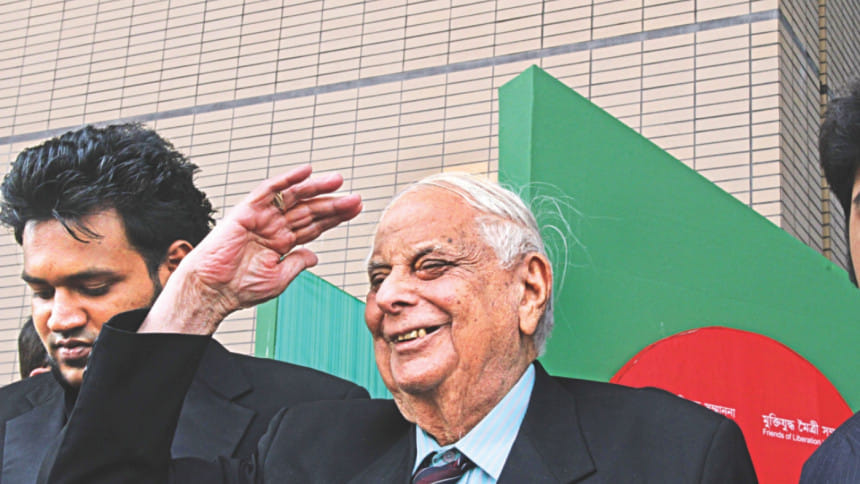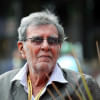Goodbye, dear old friend

The man, who flew in from Kolkata on December 16, 1971 and made Pakistan army's eastern command chief AAK Niazi to agree on surrendering in public to the joint command of Bangladesh and India, passed away yesterday.
Chief of staff of the Indian army's eastern command during the 1971 Liberation War of Bangladesh, JFR Jacob died of pneumonia at the age of 92 at Army Research and Referral Hospital in New Delhi around 8:30am. He was admitted to the hospital on January 1.
In the morning of December 16, Jacob was asked to “go and get the surrender” and shortly after noon, he stepped off his chopper with the surrender deed in hand. When it was handed to Rao Farman Ali after a quick look by Niazi, the former objected to the clause that the surrender would be to the joint command of India and Bangladesh.
An angry Farman Ali said, “It is not acceptable to me ... Please delete the words Freedom Fighters.”
“It has come from Delhi. Either you take it or leave it,” Jacob asserted, saying that they would take responsibility to protect their men only if they had surrendered maintaining the conditions put forth in the surrender document.
As Niazi was dillydallying, Jacob told him that the Pakistan army had only half an hour to decide. Niazi had no alternative but to accept the terms thrust upon him. Jacob then asked Jagjit Singh Aurora, then general officer commanding-in-chief of Indian army's eastern command, to come to Dhaka for the surrender ceremony.
“I wanted him to surrender in front of the people of Dhaka. He said, 'I won't surrender, I'd surrender in Dhaka office.' I said, 'No, you would surrender in the Racecourse Maidan [now Suhrawardy Udyan] in front of the people of Dhaka',” the Indian army veteran told newsmen on March 8, 2008 in Dhaka.
On March 27, 2012, the Bangladesh government conferred the Friends of Liberation War Honour on him for his colossal contribution to the creation of Bangladesh.
Born in 1923 in Kolkata in what was then Bengal Presidency under British-ruled India, Jacob Farz-Rafael, whose family had migrated from Iraq in the middle of 18th century, was a Jew.
Jacob had joined the Indian army at the age of 19 and also fought in World War II and the Indo-Pakistan War of 1965 before he retired in 1978.
After his retirement, he also served as the governor of western Indian state of Goa, north Indian state of Punjab and the federally-administered territory of Chandigarh.
Jacob wrote a highly acclaimed book "Surrender at Dacca" in which he elaborated on the surrender of 90,000 Pakistani troops in Dhaka.
The book, first published in 1997, begins with the Pakistan army's crackdown on Bangladesh on March 26, 1971 and then moves on to the outbreak of full-scale war and the subsequent military operations leading to the surrender of Pakistani troops.
Among other issues, Jacob in his book highlighted the role of the Mukti Bahini and the great contribution they made towards the liberation of Bangladesh.
“The full credit goes to them as they did the real job. Their acts of valour won the nation independence,” he told newsmen in Dhaka in March 2008 while talking about the gallantry of freedom fighters “who emerged as terror for the Pakistani troops”.
The book also had its share of controversies as it allegedly undermined the role of his senior officer JS Aurora who had signed the treaty of surrender in Dhaka.
Paying tribute to Jacob, Indian Prime Minister Narendra Modi tweeted: “RIP Lt Gen JFR Jacob. India will always remain grateful to him for his impeccable service to the nation at the most crucial moments.”
In her condolence message, Congress President Sonia Gandhi described Jacob as a "brave son of India".
"A brave son of India, his role in the Bangladesh liberation war has a special place in the war history of the world," she added.

 For all latest news, follow The Daily Star's Google News channel.
For all latest news, follow The Daily Star's Google News channel. 







Comments